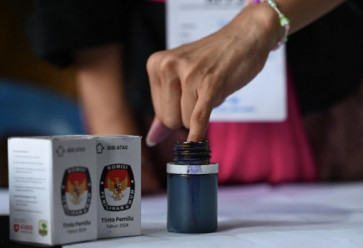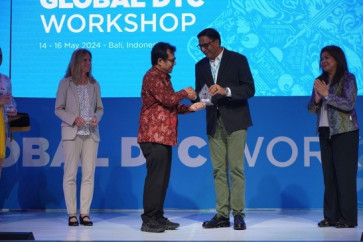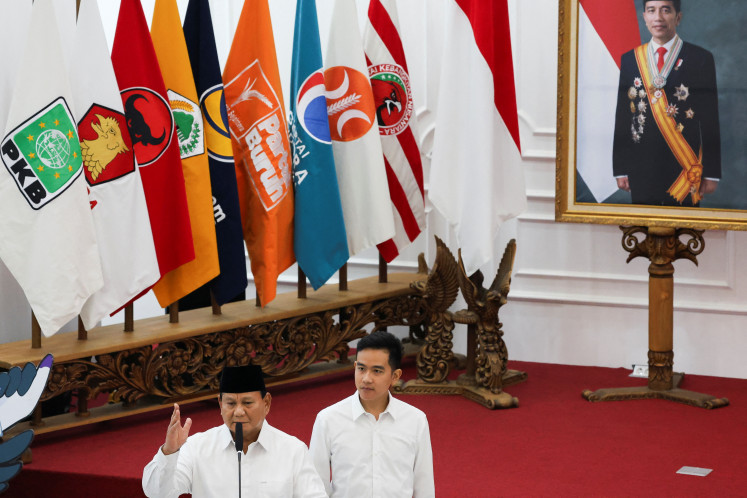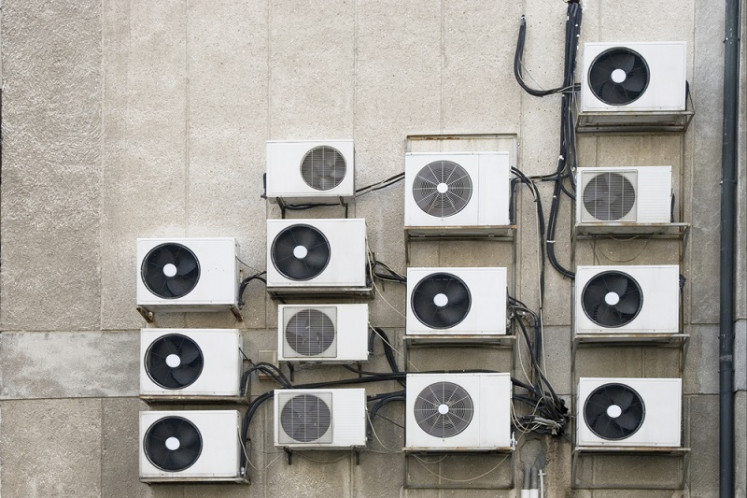RI's election system is causing vote-buying, warns expert
An expert on Indonesia from the Australian National University (ANU) hopes Indonesia will review the open proportional system in its legislative election, arguing that the system leads to corruption among legislative candidates
Change Size

A
n expert on Indonesia from the Australian National University (ANU) hopes Indonesia will review the open proportional system in its legislative election, arguing that the system leads to corruption among legislative candidates.
Speaking in Yogyakarta on Monday, Ed Aspinall said that, due to the system, there were indications that distributing money and goods to secure votes prior to the election was a main strategy adopted by legislative candidates in the 2014 legislative election.
As such, there was a tendency among elected legislative candidates to recoup what they had spent on winning votes by committing corruption once in office.
'The solution could be a district system that is combined with an open proportional system with wider electoral areas,' Aspinall said after speaking at a book discussion at Gadjah Mada University's (UGM) School of Social and Political Sciences.
Aspinall travelled throughout a number of regions in Indonesia before and after the 2014 legislative election to study vote-buying, and said the practice in the 2014 election was worse compared to the 2009 election.
'It was more systematic and was committed in almost all electoral districts,' he said.
He blamed the situation on the fact that candidates in the 2014 election, which applied an open-list proportional system, had more time to prepare their strategies.
In 2009, he added, candidates did not have enough time to do the same as the government then used a closed-list proportional system.
The Constitutional Court decided to replace the closed-list, which gave political parties the authority to decide on which candidates would sit in the legislature.
'The open-list proportional system in Indonesia has been the cause of vote buying. The same thing happens in Thailand and a number of other countries in Africa,' Aspinall said.
He added that vote buying tended to be committed in areas with poor populations and expressed concern as such practices had lead to voters becoming used to bribes.
Aspinall was in Yogyakarta to attend a discussion of author Mulyadi Sumarto's book Perlindungan Sosial dan Klientelisme: Makna Politik Bantuan Tunai dalam Pemilihan Umum (Social Protection and Clientelism: The Meaning of Cash Aid in the General Elections).
Mulyadi said direct cash assistance, locally known as BLT, distributed by the government in 2009 had a strong political dimension.
It was distributed to mobilize people to vote for President Susilo Bambang Yudhoyono in his bid for his second term.
'The government did not need to provide direct cash assistance in 2009, as the inflation rate was very low,' Mulyadi said.
'However, the government continued distributing cash aid approaching the election,' he said.
He added that various research had revealed that cash aid had contributed to Yudhoyono's victory in 2009.









